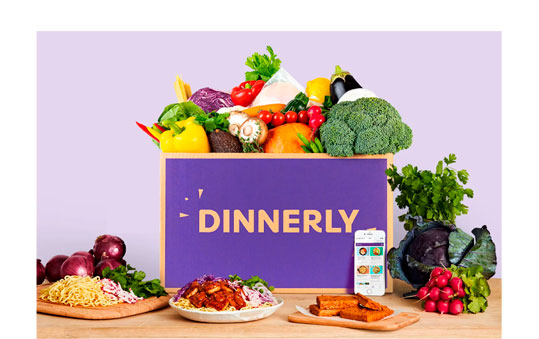 |
 |
 |
|---|
 |
|---|
 |
||||||
|---|---|---|---|---|---|---|
|
||||||
 |
 |
|||||
 |
 |
|||||
 |
 |
|||||
 |
 |
|||||
 |
 |
|||||
 |
 |
|---|
The Rise of Meals Already Made and Delivered: A Comprehensive AnalysisIn today’s fast-paced world, where time is a precious commodity and convenience often trumps traditional methods, the concept of meals already made and delivered has gained significant traction. This burgeoning industry, which combines the ease of ready-made meals with the efficiency of home delivery, has sparked both interest and debate among consumers and experts alike. But what exactly are the benefits and drawbacks of this culinary revolution? Let's delve into a nuanced exploration of this phenomenon. Convenience at Your Doorstep One of the most compelling advantages of meals already made and delivered is, undoubtedly, the convenience it offers. In an era where balancing work, family, and personal time can be challenging, having nutritious meals delivered right to your doorstep can be a game-changer. No longer do you need to worry about meal planning, grocery shopping, or the sometimes tedious process of cooking. This service can be particularly beneficial for busy professionals, parents juggling multiple responsibilities, or individuals who simply prefer to spend their time on pursuits other than cooking. Quality and Variety The quality of meals available through these services has also seen a significant improvement. Many companies pride themselves on offering gourmet dishes crafted by professional chefs, ensuring that the food is not only convenient but also delicious and of high culinary standard. Additionally, the variety is impressive; from traditional comfort foods to exotic international cuisines, there is something to suit every palate. For those with dietary restrictions or preferences, such as vegetarian, vegan, or gluten-free options, these services often cater to a wide range of needs, making it easier for individuals to adhere to their dietary goals without feeling limited. Environmental Considerations However, the rise of this industry is not without its drawbacks. A significant concern is the environmental impact associated with packaging and delivery. The convenience of having meals delivered often comes at the cost of increased packaging waste, which can contribute to environmental degradation. While some companies are making strides towards sustainable practices by using recyclable materials and optimizing delivery routes to reduce carbon footprints, this remains an area that requires ongoing attention and improvement. Cost Implications Another factor to consider is the cost. Meals already made and delivered can be more expensive than cooking at home, as you are paying for the convenience and expertise of the service. For some, this additional cost is justified by the time saved and the enjoyment of high-quality meals without the effort of preparation. For others, especially those on a tight budget, this might not be a feasible long-term solution. However, occasional use, such as during particularly busy weeks or as a treat, can provide a balance between cost and convenience. Social and Cultural Impacts Moreover, there are social and cultural considerations. The tradition of cooking and sharing meals is an integral part of many cultures and family dynamics. While the convenience of delivered meals is undeniable, it might also lead to a gradual decline in home-cooked family meals and the bonding experiences they foster. Balancing the use of meal delivery services with traditional cooking and dining practices can help preserve these important social connections. The Future of Meal Delivery In conclusion, the industry of meals already made and delivered is a testament to the evolving nature of consumer needs and lifestyles. With its mix of advantages and challenges, it represents a shift in how we approach food and dining. As companies continue to innovate and address the current drawbacks, such as environmental impact and cost, the future looks promising for this convenient dining option. For now, staying well-informed and making conscious choices can help consumers maximize the benefits while minimizing the downsides, allowing for a balanced approach to modern dining. https://eatcleanbro.com/?srsltid=AfmBOoqW2Uz1YyHP44Pgj_UXjlgQQbZOJiR_m7AvQhltlMHJCTURERK9
Fresh, Ready-Made Meals Delivered to Your Door - Eat Clean Bro provides dietitian-approved, chef-crafted meals made with real ingredients, allowing you to fuel ... https://www.bonappetit.com/story/best-meal-delivery-services?srsltid=AfmBOoqkQ7rl-J4efSfucqOhK_WwQtwW6tqeQ_zYRyP_R8tXGE2uyfWg
HelloFresh is likely the brand most people think of when they think meal kit. It's aimed at a wide audience but allows you to choose plans ... https://www.homechef.com/?srsltid=AfmBOopqFUYC443uRZ0z9TpqS6609IHI-d5x7HEuFltTrOOyHxIFbeu5
Our weekly deliveries of fresh, perfectly-portioned ingredients have everything you need to prepare home-cooked meals in about 30 minutes.
|
|---|


